On April 28th, The Stockholm free World Forum (Frivärld) hosted the conference “Security in Northern and Eastern Europe 2014” in Stockholm. The aim of the conference was to discuss the security situation in Northern and Eastern Europe. The sessions focused on the security situation in the region, Russia and on the transatlantic cooperation. Some of the questions that were addressed were:
After the Crimea Crisis: How will Russia develop as a regional actor? The future of US defense: How will Europe be affected? What is the future of NATO in Europe? and What is the role of the Nordic countries for the common security of the region?
For questions, please contact Katarina Tracz, director of the conference. Cell: +46708922188
Speakers
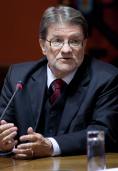 Atis Lejins is a member of the Latvian Parliament. He is the vice chair of the EU Affairs Committee and a member of the Foreign Affairs Committee. Lejins returned to Latvia in 1991 after the restoration of Latvian independence. Previously, he had worked for the Swedish Institute of International Affairs. He was deputy chief of the Latvian Information Office in Stockholm in January 1991. Lejins was elected chair of the Latvian Popular Front Section in Sweden in 1989. He founded and directed the Latvian Institute of International Affairs from 1992 to 2009, after which he became a Member of Parliament in 2010. He is the author, editor or co-editor of numerous articles and books on Baltic and International Affairs. Atis Lejins is a member of the Latvian Parliament. He is the vice chair of the EU Affairs Committee and a member of the Foreign Affairs Committee. Lejins returned to Latvia in 1991 after the restoration of Latvian independence. Previously, he had worked for the Swedish Institute of International Affairs. He was deputy chief of the Latvian Information Office in Stockholm in January 1991. Lejins was elected chair of the Latvian Popular Front Section in Sweden in 1989. He founded and directed the Latvian Institute of International Affairs from 1992 to 2009, after which he became a Member of Parliament in 2010. He is the author, editor or co-editor of numerous articles and books on Baltic and International Affairs. |
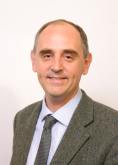 Edward Lucas is a senior editor of The Economist, the world’s foremost news weekly. His expertise includes energy, cyber-security, espionage, Russian foreign and security policy and the politics and economics of Eastern Europe. He is the author of several books, including The New Cold War: How the Kremlin Menaces Both Russia and the West, a prescient account of Vladimir Putin’s Russia, and Deception: Spies, Lies and How Russia Dupes the West (2011), an investigative account of east-west espionage. An experienced broadcaster, public speaker, moderator and panellist, Edward Lucas has given public lectures at Harvard, Oxford, Cambridge and other leading universities. He is a regular contributor to the BBC’s Today and Newsnight programmes, and to NPR, CNN and Sky News. He is regularly cited by Foreign Policy magazine as one of the top 100 Twitterati. Edward Lucas is a senior editor of The Economist, the world’s foremost news weekly. His expertise includes energy, cyber-security, espionage, Russian foreign and security policy and the politics and economics of Eastern Europe. He is the author of several books, including The New Cold War: How the Kremlin Menaces Both Russia and the West, a prescient account of Vladimir Putin’s Russia, and Deception: Spies, Lies and How Russia Dupes the West (2011), an investigative account of east-west espionage. An experienced broadcaster, public speaker, moderator and panellist, Edward Lucas has given public lectures at Harvard, Oxford, Cambridge and other leading universities. He is a regular contributor to the BBC’s Today and Newsnight programmes, and to NPR, CNN and Sky News. He is regularly cited by Foreign Policy magazine as one of the top 100 Twitterati. |
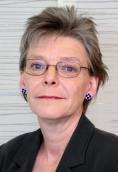 Gudrun Persson is deputy research director at FOI. She holds a Ph.D. from the London School of Economics and Political Science. She focuses on Russian security policy and foreign policy, as well as Russian strategic military thought. She is a Docent at the Slavic Department, Stockholm University and a member of the Royal Swedish Academy of War Sciences. Among her latest publications are ‘Security Policy and Military Strategic Thinking’ in Jakob Hedenskog & Carolina Vendil Pallin (ed.) Russian Military Capability in a Ten-Year Perspective – 2013. Stockholm: FOI, 71-88, ‘Russian History – A Matter of National Security’, FOI Briefing No 19, 2013, The Soviet Legacy (Det sovjetiska arvet – in Swedish), 2011, and Learning from Foreign Wars. Russian Military Thinking 1859-1873, 2010. Gudrun Persson is deputy research director at FOI. She holds a Ph.D. from the London School of Economics and Political Science. She focuses on Russian security policy and foreign policy, as well as Russian strategic military thought. She is a Docent at the Slavic Department, Stockholm University and a member of the Royal Swedish Academy of War Sciences. Among her latest publications are ‘Security Policy and Military Strategic Thinking’ in Jakob Hedenskog & Carolina Vendil Pallin (ed.) Russian Military Capability in a Ten-Year Perspective – 2013. Stockholm: FOI, 71-88, ‘Russian History – A Matter of National Security’, FOI Briefing No 19, 2013, The Soviet Legacy (Det sovjetiska arvet – in Swedish), 2011, and Learning from Foreign Wars. Russian Military Thinking 1859-1873, 2010. |
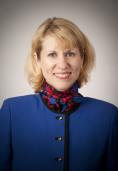 Heather A. Conley is a senior fellow and director of the Europe Program at the Center for Strategic and International Studies (CSIS). From 2005 to 2008, she was the executive director of the Office of the Chairman of the Board at the American National Red Cross. From 2001 to 2005, she served as deputy assistant secretary of state in the Bureau for European and Eurasian Affairs with responsibilities for US bilateral relations with the 15 countries of northern and central Europe. Ms Conley received her BA in international studies from West Virginia Wesleyan College and her MA in international relations from the Johns Hopkins University School of Advanced International Studies (SAIS). Heather A. Conley is a senior fellow and director of the Europe Program at the Center for Strategic and International Studies (CSIS). From 2005 to 2008, she was the executive director of the Office of the Chairman of the Board at the American National Red Cross. From 2001 to 2005, she served as deputy assistant secretary of state in the Bureau for European and Eurasian Affairs with responsibilities for US bilateral relations with the 15 countries of northern and central Europe. Ms Conley received her BA in international studies from West Virginia Wesleyan College and her MA in international relations from the Johns Hopkins University School of Advanced International Studies (SAIS). |
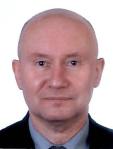 Jarosław Bratkiewicz is Political Director at the Polish Ministry of Foreign Affairs. During the 1980’s, he was active in the Solidarity underground movement. Bratkiewicz started working for the MFA in 1992. In 1996 he was appointed to the post of Ambassador of Poland to Republic of Latvia where remained until 2001. Bratkiewicz is a graduate from Moscow Institute of International Relations. He holds a PhD in Political Science and is the author of several books and dozens of studies and articles on Eastern civilizations, problems of political systems and the issue of modernization. Jarosław Bratkiewicz is Political Director at the Polish Ministry of Foreign Affairs. During the 1980’s, he was active in the Solidarity underground movement. Bratkiewicz started working for the MFA in 1992. In 1996 he was appointed to the post of Ambassador of Poland to Republic of Latvia where remained until 2001. Bratkiewicz is a graduate from Moscow Institute of International Relations. He holds a PhD in Political Science and is the author of several books and dozens of studies and articles on Eastern civilizations, problems of political systems and the issue of modernization. |
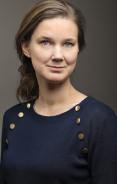 Karin Svanborg-Sjövall works at Timbro, a pro-market think tank based in Stockholm, where she is responsible for welfare policy. She has previously been a columnist at Kvällsposten and an editorial writer at Dagens Nyheter. An expert on policy, she has worked as EU coordinator in the parliamentary office of the Swedish Liberal party, head of the party office in the European Parliament and a political adviser to the minister of research and higher education in the Swedish government. Svanborg-Sjövall is the author of Private Choice in the Public Sector: The New Swedish Welfare Model, on the subject of privatization and the public sector. Karin Svanborg-Sjövall works at Timbro, a pro-market think tank based in Stockholm, where she is responsible for welfare policy. She has previously been a columnist at Kvällsposten and an editorial writer at Dagens Nyheter. An expert on policy, she has worked as EU coordinator in the parliamentary office of the Swedish Liberal party, head of the party office in the European Parliament and a political adviser to the minister of research and higher education in the Swedish government. Svanborg-Sjövall is the author of Private Choice in the Public Sector: The New Swedish Welfare Model, on the subject of privatization and the public sector. |
 Katarina Tracz is the conference director of Security in Northern and Eastern Europe, 2014 and deputy director of the Stockholm Free World Forum. She has previously worked on press and communications issues for, among others, the Swedish Ministry for Foreign Affairs. She studied Political Science and International Relations at Stockholm University, IEP de Paris and Columbia University. Tracz is the author of the Stockholm Free World Forum publications The Drone War: Just Another War? (2013) and Spring of Hatred: Minority Intolerance in Egypt after the Arab Spring (2012). Katarina Tracz is the conference director of Security in Northern and Eastern Europe, 2014 and deputy director of the Stockholm Free World Forum. She has previously worked on press and communications issues for, among others, the Swedish Ministry for Foreign Affairs. She studied Political Science and International Relations at Stockholm University, IEP de Paris and Columbia University. Tracz is the author of the Stockholm Free World Forum publications The Drone War: Just Another War? (2013) and Spring of Hatred: Minority Intolerance in Egypt after the Arab Spring (2012). |
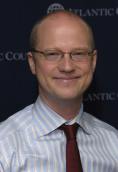 Magnus Nordenman is the deputy director of the Brent Scowcroft Center on International Security at the Atlantic Council, Washington, D.C. His areas of expertise include NATO and its partners, Nordic-Baltic security, maritime security and US military affairs. Before coming to the Atlantic Council, Nordenman served as a defence analyst with a small Washington consulting company. He has also served as a strategic planning consultant for a European naval contractor. A graduate of the Virginia Military Institute, he earned an MA in National Security Studies from the Patterson School of Diplomacy at the University of Kentucky. Magnus Nordenman is the deputy director of the Brent Scowcroft Center on International Security at the Atlantic Council, Washington, D.C. His areas of expertise include NATO and its partners, Nordic-Baltic security, maritime security and US military affairs. Before coming to the Atlantic Council, Nordenman served as a defence analyst with a small Washington consulting company. He has also served as a strategic planning consultant for a European naval contractor. A graduate of the Virginia Military Institute, he earned an MA in National Security Studies from the Patterson School of Diplomacy at the University of Kentucky.
.
|
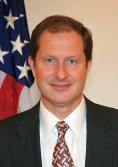 Mark Brzezinski is the US Ambassador to Sweden. He has had a distinguished career in both public service and the private sector. Most recently, he has been a partner in the Washington, D.C., office of the law firm McGuireWoods, specializing in anti-corruption law. Brzezinski served as a Director of the National Security Council in the White House from 1999 to 2001. He is a member of the J. William Fulbright Foreign Scholarship Board and the Council on Foreign Relations. He is the author of The Struggle for Constitutionalism in Poland and numerous articles on foreign policy and law. He has a BA from Dartmouth College, a J.D. from the University of Virginia School of Law and a Doctorate from Oxford University. Mark Brzezinski is the US Ambassador to Sweden. He has had a distinguished career in both public service and the private sector. Most recently, he has been a partner in the Washington, D.C., office of the law firm McGuireWoods, specializing in anti-corruption law. Brzezinski served as a Director of the National Security Council in the White House from 1999 to 2001. He is a member of the J. William Fulbright Foreign Scholarship Board and the Council on Foreign Relations. He is the author of The Struggle for Constitutionalism in Poland and numerous articles on foreign policy and law. He has a BA from Dartmouth College, a J.D. from the University of Virginia School of Law and a Doctorate from Oxford University. |
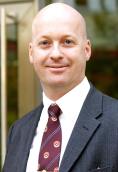 Mike Winnerstig is a member of the Royal Swedish Academy of the War Sciences and has a PhD in Political Science from Stockholm University. He was a Guest Researcher at the Centre for Defence Studies, Aberdeen University (1994), and at the Stiftung Wissenschaft und Politik, Germany (1995), as well as a Research Fellow at Harvard University in 1997–1998. Between 1993 and 1999 he was a Researcher at the Swedish Institute of International Affairs. Since 2000 he has been Deputy Director of Research, Defence Analysis Division, at the Swedish Defence Research Agency (FOI). Mike Winnerstig is a member of the Royal Swedish Academy of the War Sciences and has a PhD in Political Science from Stockholm University. He was a Guest Researcher at the Centre for Defence Studies, Aberdeen University (1994), and at the Stiftung Wissenschaft und Politik, Germany (1995), as well as a Research Fellow at Harvard University in 1997–1998. Between 1993 and 1999 he was a Researcher at the Swedish Institute of International Affairs. Since 2000 he has been Deputy Director of Research, Defence Analysis Division, at the Swedish Defence Research Agency (FOI).
|
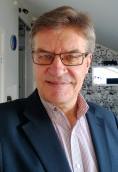 Pauli Järvenpää is a former Finnish diplomat and senior government official. He joined the International Centre for Defence Studies in May 2013. As a Senior Research Fellow at ICDS, Dr Järvenpää focuses on the security of the Baltic Sea and Nordic region, on issues related to NATO, the EU and transatlantic cooperation, and on the security and development of Afghanistan. Ambassador Järvenpää most recently served as the Finnish Ambassador to Afghanistan (2010–2013). Before that he was Director General of the Defence Policy Department at the Finnish Ministry of Defence (2002–2010) and the Defence Adviser at Finland’s Mission to NATO in Brussels (1999–2002). Pauli Järvenpää is a former Finnish diplomat and senior government official. He joined the International Centre for Defence Studies in May 2013. As a Senior Research Fellow at ICDS, Dr Järvenpää focuses on the security of the Baltic Sea and Nordic region, on issues related to NATO, the EU and transatlantic cooperation, and on the security and development of Afghanistan. Ambassador Järvenpää most recently served as the Finnish Ambassador to Afghanistan (2010–2013). Before that he was Director General of the Defence Policy Department at the Finnish Ministry of Defence (2002–2010) and the Defence Adviser at Finland’s Mission to NATO in Brussels (1999–2002). |
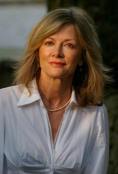 Veronika Wand-Danielsson is Sweden‘s Ambassador and Head of Mission to NATO. Before joining the Swedish Foreign Ministry in 1990, she worked as a consultant at the OECD DAC Development Centre in Paris and as a research assistant at the Swedish Broadcasting Corporation (SVT). Wand-Danielsson has also worked for the European Commission, responsible for drugs control cooperation with the African, Caribbean and Pacific States. She was appointed Information and communication adviser to the Director General in 1998. Veronika Wand-Danielsson was educated in Norway (Baccalaureate), Sweden (BSc, Uppsala University) and Paris (Certificat d’Etudes politiques at Institut de Sciences Politiques), complemented by PhD studies in the department for Political Science, Stockholm University. Veronika Wand-Danielsson is Sweden‘s Ambassador and Head of Mission to NATO. Before joining the Swedish Foreign Ministry in 1990, she worked as a consultant at the OECD DAC Development Centre in Paris and as a research assistant at the Swedish Broadcasting Corporation (SVT). Wand-Danielsson has also worked for the European Commission, responsible for drugs control cooperation with the African, Caribbean and Pacific States. She was appointed Information and communication adviser to the Director General in 1998. Veronika Wand-Danielsson was educated in Norway (Baccalaureate), Sweden (BSc, Uppsala University) and Paris (Certificat d’Etudes politiques at Institut de Sciences Politiques), complemented by PhD studies in the department for Political Science, Stockholm University. |
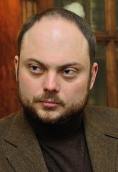 Vladimir V. Kara-Murza is a senior adviser at the Institute of Modern Russia. He is also a member of the federal council of the People’s Freedom Party in Russia. Kara-Murza was a candidate for the Russian Parliament in 2003, campaign chairman for the presidential candidacy of Vladimir Bukovsky (2007–08) and adviser to the Duma opposition leader Boris Nemtsov (2000–03). He was previously the Washington bureau chief of RTVi and a correspondent for Novye Izvestia and Kommersant. Kara-Murza has published op-eds in the Financial Times, the Washington Post, and the Wall Street Journal, and has testified before the European Parliament and the US Congress. Vladimir V. Kara-Murza is a senior adviser at the Institute of Modern Russia. He is also a member of the federal council of the People’s Freedom Party in Russia. Kara-Murza was a candidate for the Russian Parliament in 2003, campaign chairman for the presidential candidacy of Vladimir Bukovsky (2007–08) and adviser to the Duma opposition leader Boris Nemtsov (2000–03). He was previously the Washington bureau chief of RTVi and a correspondent for Novye Izvestia and Kommersant. Kara-Murza has published op-eds in the Financial Times, the Washington Post, and the Wall Street Journal, and has testified before the European Parliament and the US Congress.
|
Security in Northern and Eastern Europe 2014 – Videos
Welcome
Mats Johansson.
The Future of US Defense: Effects on the Transatlantic Cooperation
Ambassador Mark Brzezinski. Moderator: Katarina Tracz.
Russia as a Regional Actor Post the Ukraine Crisis
Edward Lucas, comments: Vladimir Kara-Murza and Gudrun Persson. Moderator: Karin Svanborg-Sjövall.
The Eastern Partnership – What is Next?
Jaroslaw Bratkiewicz and Argita Daudze. Moderator: Stefan Olsson.
The Future of NATO in Europe
Heather A. Conley, comments: Mike Winnerstig and Magnus Nordenman. Moderator: Katarina Tracz.
The Role of the Nordic Countries in NATO
Pauli Järvenpää, comments: Atis Lejins and Veronica Wand Danielsson. Moderator: Mats Johansson.
Final Remarks
Stefan Olsson.
 Edward Lucas is a senior editor of The Economist, the world’s foremost news weekly. His expertise includes energy, cyber-security, espionage, Russian foreign and security policy and the politics and economics of Eastern Europe. He is the author of several books, including The New Cold War: How the Kremlin Menaces Both Russia and the West, a prescient account of Vladimir Putin’s Russia, and Deception: Spies, Lies and How Russia Dupes the West (2011), an investigative account of east-west espionage. An experienced broadcaster, public speaker, moderator and panellist, Edward Lucas has given public lectures at Harvard, Oxford, Cambridge and other leading universities. He is a regular contributor to the BBC’s Today and Newsnight programmes, and to NPR, CNN and Sky News. He is regularly cited by Foreign Policy magazine as one of the top 100 Twitterati.
Edward Lucas is a senior editor of The Economist, the world’s foremost news weekly. His expertise includes energy, cyber-security, espionage, Russian foreign and security policy and the politics and economics of Eastern Europe. He is the author of several books, including The New Cold War: How the Kremlin Menaces Both Russia and the West, a prescient account of Vladimir Putin’s Russia, and Deception: Spies, Lies and How Russia Dupes the West (2011), an investigative account of east-west espionage. An experienced broadcaster, public speaker, moderator and panellist, Edward Lucas has given public lectures at Harvard, Oxford, Cambridge and other leading universities. He is a regular contributor to the BBC’s Today and Newsnight programmes, and to NPR, CNN and Sky News. He is regularly cited by Foreign Policy magazine as one of the top 100 Twitterati.










